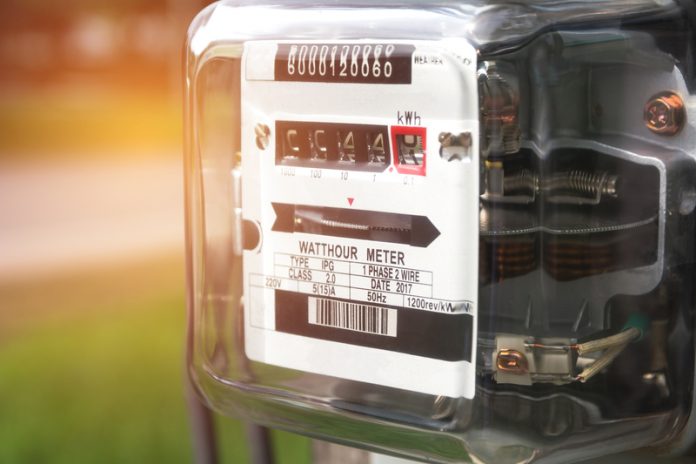Tony Anderson, Business Development Manager at Arqiva, discusses how smart meters are measuring up to be one of the most debated topics for today’s energy industry
As utilities providers push to meet ambitious installation targets, consumers remain steadfast in their questioning of the need, safety and benefits of digitising their meters
That said, more than 10 million smart meters have already been deployed to manage UK domestic energy demand (in gas and electricity) – delivering undoubtable cost and efficiency savings to homeowners nationwide. It is believed that smart meters could have the same impact on the UK’s water market – not only benefitting consumers but helping providers effectively manage resources and reduce wastage.
The situation for water companies, however, is slightly different. According to Water UK, only half of British households have a water meter installed – the rest living in unmetered properties. The resulting challenge for water providers is two-fold: make the case for metering, then for making those meters ‘smart’.
With Ofwat figures revealing that water leakage levels across England and Wales have remained static for the past decade, the regulator is challenging providers to achieve a minimum 15% reduction by 2025. The need for a more advanced solution to help companies meet these ‘stretch targets’ is clear – and fixed network smart water meters are an obvious answer…
Smarter meters, shorter run-times
Most UK water suppliers claim to run some sort of smart metering programme – but the word ‘smart’ is used very loosely. For many companies, ‘smart’ equates to annual drive- or walk-by meter readings, gaining limited information beyond overall consumption and active leaks. While a step up from traditional manual-read meters, the average time between a leak starting and being fixed (i.e. run-time) is estimated to be around 9 months – during which wastage could be exorbitant.
In comparison, the hourly readings fixed network smart meters send to utility providers can reduce leak run-time to just 2-3 weeks – saving significant amounts of time, money and water.
Companies like Thames Water have already started to respond to this. The first supplier to implement Arqiva’s FlexNet fixed network smart water meters in 2016, Thames has subsequently seen a considerable reduction in leak run-times across its network.
While clearly compelling, it requires large-scale, UK-wide deployment to feel the full benefits of fixed network smart water meters.
Big data, bigger savings
As water companies expand their web of smart meters, the amount of data available to collect increases, resulting in a near-to-real-time view of their water supply – from demand management and leak detection to consumption habits.
Not only is this information crucial for efficient supply management, but it can also inform customers about their own levels of water consumption. Just like leaks, poor usage habits have a substantial impact on overall loss, and it’s the supplier’s responsibility to influence consumer behaviour and provide customers with the necessary tools to use water more efficiently.
The two-way communication capability of fixed networks allows providers to remotely access meters and instantly identify and alert customers to problems. Homeowners can access the same information through online portals, helping them closely monitor and control their habits – a simple step many believe could lead to a 12 per cent reduction in usage.
Future business case
As the installation of smart water meters becomes more widespread, the industry will naturally look to other tools and technologies to improve resource management. More monitoring devices will be incorporated into existing networks, and advanced data analytics and AI solutions will provide utility companies with a wealth of data to inform their understanding of leaks and loss prevention (effectively plugging bursts before any waste occurs).
The success of such innovations is dependent on both a fixed network’s ability to quickly and reliably relay large amounts of data, and the resilience of the technology behind it.
In future, the slightest fault in a smart water network could be the difference between saving or losing thousands of litres of water and millions of pounds. For example, if a cellular-based network suddenly lost signal or couldn’t handle the amount of data crossing its network, the transfer of vital information indicating a significant leak could be delayed or miscommunicated.
Therefore, the industry needs smart water meters with networks that can retain a continuous connection to the host, provide communications from even the hardest to reach areas, and handle the everyday challenges of water companies. Arqiva’s fixed networks tick all the boxes.
Conclusion
Today’s water industry is certainly riding a sea of radical transformation – and the rate of change isn’t about to ebb now. Ambitious leakage reduction targets, the threat of Ofwat fines and the emergence of disruptive technologies are all contributing to an extended period of evolution for the sector.
Water companies need a smart metering solution that can drive efficiencies for the short- and long-term, and keep up with the demands of this transforming market. At least for now one thing is sure: the case for widespread deployment of fixed network smart water meters has never been more urgent, nor stronger…












Hardly a week goes by without the local community facebook page declaring disruption caused by some major leak in the Town – in fact the last one which was shared to tens of thousands of people in photos and videos, resembled Niagra falls, and I hate to think how many weeks worth of the entire Towns’ normal water use were lost from this one leak!. Multiply this by similar leaks breaking out in other Towns and Cities and you’ll probably have effectively undone many years worth of water saving advice. If saving water is paramount, when are the exemplars in the Water Companies, going to start leading by example eh?.